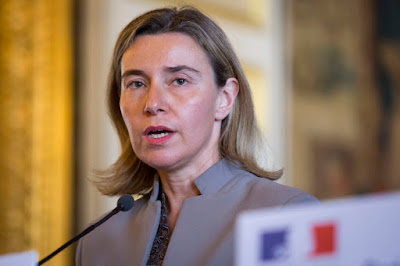EU
needs Greek action to save Turkey refugee deal
Greece
must ensure its refugee ‘hotspots’ don’t ruin the EU-Turkey
migration deal.
By FLORIAN EDER
3/15/16, 7:59 PM CET
The European
Commission wants Greece to drastically speed up the processing of
asylum requests to a week, rather than months, to avoid scuppering a
potential deal with Turkey to slow down the inflow of refugees.
Brussels is already
struggling to secure unanimous support at an EU summit this week for
the agreement, which is backed by German Chancellor Angela Merkel but
has met objections from at least six member countries, with stiff
opposition from Cyprus.
Greece will play a
crucial role in the refugee deal, being tasked with sending back to
Turkey those migrants who illegally arrive on the Greek islands. In
return, EU countries are supposed to agree to relocate an equivalent
number of Syrian asylum seekers who are in Turkey, and the Turkish
government will receive €6 billion of EU aid to help deal with the
humanitarian crisis.
However, underlining
its concerns about Athens’ ability to perform that role, the
Commission is putting pressure on Greece to boost the capacity of its
asylum service “in order to process a high number of asylum
applications within a short period of time.”
Couched as legal
advice, that was the gist of a Commission document for Greek and
Turkish authorities being prepared for the summit, of which POLITICO
obtained a copy. Given the Greek government’s poor track record on
processing refugees, the document repeatedly stressed the need for
acting “swiftly,” “in a short space of time” and “within a
short period of time.”
That means Greece
should no longer take months to process an asylum request, but “about
one week,” said one EU diplomat familiar with the plans.
As well as
accelerating its bureaucracy, Greece needs to set up one-stop shops
that can accept or reject asylum requests and go through the
requisite legal appeals process, from the first instance to the final
court appeal, “within a short period of time.”
A Syrian girl looks
through the window of a bus where she has lived with her family for
the eight months at a refugee camp in Bab al-Salama, on the
Syria-Turkey border
The EU-Turkey
agreement will pledge to respect the legal and human rights of
migrants and refugees and a discussion paper for the summit prepared
by European Council President Donald Tusk’s office, a copy of which
was obtained by POLITICO, says that all migrants being returned to
Turkey will be “protected in accordance with international
standards.”
However, Greece has
been suspended from parts of European asylum agreements since 2011
because of the poor conditions in its asylum shelters. It takes
longer than almost any other EU country to process them legally, and
it has been criticized by the EU repeatedly for delays in setting up
so-called “hotspots” to register incoming refugees.
The Commission tells
Greece, in the paperwork prepared for the summit, that it must ensure
the “logistics and workflows” of these hotspots are efficient
enough to stop migrants who are to be shipped back to Turkey leaving
the registration centers: It must ensure there are necessary
“reception capacities … including closed detention.”
The hope is to
dissuade would-be migrants from giving people-smugglers money to
ferry them into Europe in the first place.
Jacopo Barigazzi
contributed to this article.














Sem comentários:
Enviar um comentário